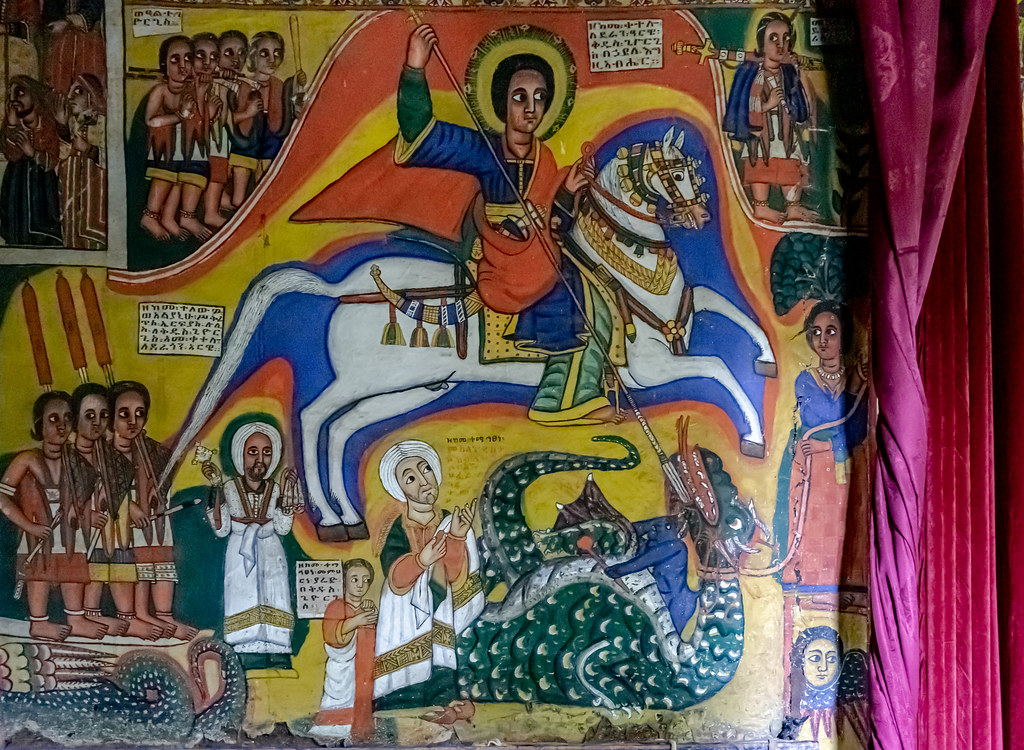Amhara mythology is an ancient belief system that originates from Ethiopia's Amhara region. It is a rich tapestry of myths, legends, folk tales, and religious stories. This overview will delve into the intricacies of Amhara mythology, exploring its origins, deities, and rituals.
Origins of Amhara Mythology
Amhara mythology developed over time, blending together pre-existing beliefs and new influences. Key influences include Animism and Christianity, both of which played a significant role in shaping Amhara mythology.
Ancestral Worship
Amhara mythology has strong ties to ancestral worship, where ancestors are revered and worshipped as spiritual beings. These ancestors are believed to be intermediaries between the living and the spiritual world. They offer protection, guidance, and support to the living descendants.
In Amhara mythology, ancestral worship holds a significant importance as it is believed that the spirits of the ancestors continue to exist in the spiritual realm, despite their physical departure from this world. Due to this belief, ancestors are revered and considered as spiritual beings who can provide guidance and support to their living descendants. Amhara people strongly rely on their ancestors for protection and assistance in their daily lives. The bond between the living and the deceased is considered sacred and it's believed that the ancestors have the power to influence the life of their descendants. Therefore, ancestral worship is a vital part of the Amhara culture and continues to shape their beliefs and way of life.

Deities
Amhara mythology is also filled with numerous deities. The most prominent ones are Waaq and Qaynan. Waaq, the creator god, is worshipped through offerings and prayers for success in all aspects of life. Qaynan, the god of war and destruction, is worshipped to provide protection during conflict and unrest.
Amhara mythology is also rich with various other deities besides Waaq and Qaynan. These deities are prayed to and worshipped for various purposes. For instance, Bedwoo is a god who is believed to provide fruitful harvests, while Za Mariam is revered for his healing powers. The goddess Atete, on the other hand, is said to offer blessings for fertility and childbearing. These deities, along with many others, are an important part of Amhara mythology, and their stories and influence continue to be passed down through generations.
Rituals
Rituals play an essential role in Amhara mythology. They involve offerings, fasting, and animal sacrifice. These rituals are often performed to honor ancestors, deities, or to seek guidance in everyday life.
Amhara mythology remains deeply rooted in tradition, where rituals have served as an important aspect of religious practice since ancient times. From generation to generation, ritual practices such as offerings, fasting, and animal sacrifice are passed down as a way to connect with the spiritual realm. Rituals not only honor the ancestors and deities but also offer guidance for everyday life situations. The significance of these rituals cannot be overstated, as they continue to be an important part of the Amhara community's spiritual and cultural identity.
Amhara mythology is a complex belief system that captures the essence of the culture and its people. Understanding Amhara mythology provides insight into the rich history and traditions of Ethiopia's Amhara region.